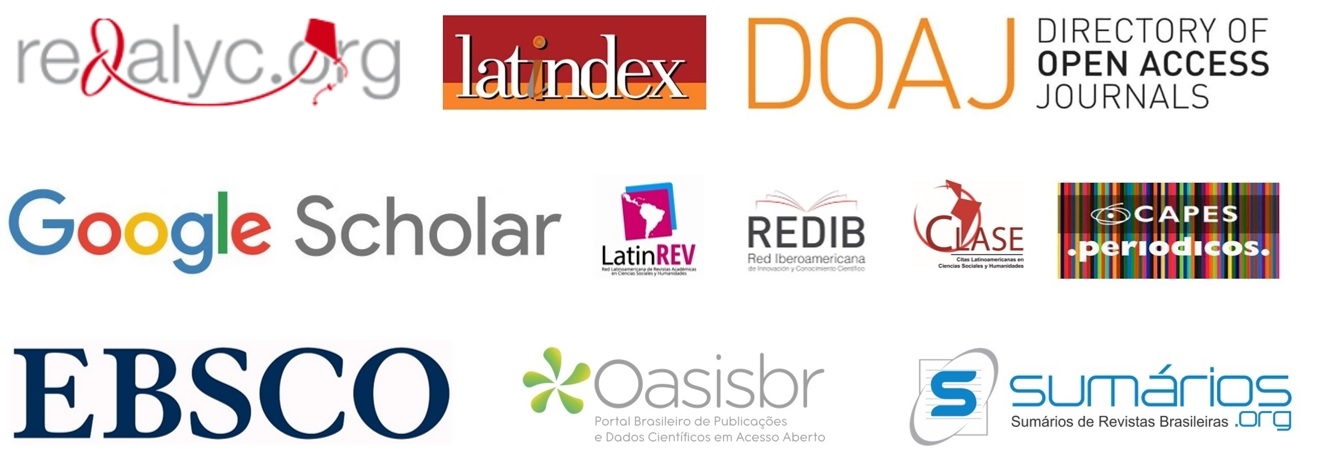“É pelas mãos das mulheres que vai passar a retomada econômica do país”: a cidadania maternal nos discursos da extrema-direita brasileira
DOI:
https://doi.org/10.11606/issn.2176-8099.pcso.2024.222718Palavras-chave:
Maternidade, Cidadania, Extrema-direita, Governamentalidade, NeoliberalismoResumo
Partindo do argumento transnacional de que as mulheres representam uma nova fronteira para o desenvolvimento econômico das nações, este artigo analisa um conjunto de discursos de gênero entrelaçados a estreitos ideais de cidadania materna. A partir de uma análise de discurso, analiso a noção de neoliberalismo como tecnologia móvel para ilustrar como o uso de narrativas moralizantes da extrema direita brasileira durante o governo Jair Bolsonaro (2019-2022) enquadra as mulheres como figuras maternas e empreendedoras. Responsáveis por imbuir as futuras gerações com condutas autônomas, destaca-se que as mulheres pobres se tornam moralmente responsáveis por promover o progresso nacional, um enquadramento que tem sido aplicável tanto a orientações neoliberais progressistas quanto neoconservadoras.
Downloads
Referências
Alexander, Jacqui (1994). "Not Just (Any) Body Can be a Citizen”: The Politics of Law, Sexuality and Postcoloniality in Trinidad and Tobago and the Bahamas. Feminist Review, 48 (Autumn). 133-149.
Allen, K. & Taylor, Y., (2012) “Placed Parenting, locating unrest: failed femininities, troubled mothers and rioting subjects”, Studies in the Maternal 4(2), 1-25. doi: https://doi.org/10.16995/sim.39
Alvarez, S. Beyond NGO‐ization?: Reflections from Latin America. Development 52, 175–184 (2009). https://doi.org/10.1057/dev.2009.23
Anderson, Benedict. Comunidades imaginadas. 1 ed. São Paulo: Companhia das Letras, 2008.
Bardin, Laurence. Análise de conteúdo. São Paulo: Edições 70, 2011, 229 p.
Bedford, K. (2009). Doing Business with the Ladies: Gender, Legal Reform, and Entrepreneurship in the International Finance Corporation. Labour, Capital and Society / Travail, Capital et Société, 42(1/2), 168–194. http://www.jstor.org/stable/43158353
Bilac, Elisabete. Trabalho e família: Articulações possíveis. Tempo social, v. .26, n. 1, São Paulo, 2014, pp.129-145
Calkin, Sydney. "Disrupting disempowerment: feminism, co-optation, and the privatised governance of gender and development." new formations: a journal of culture/theory/politics 91 (2017): 69-86. muse.jhu.edu/article/671951.
Chant, Sylvia and Sweetman, Caroline (2012) ‘Fixing Women or Fixing the World? “Smart Economics”, Efficiency Approaches, and Gender Equality in Development’, Gender and Development 20(3): 517–29.
Cooper, Melinda. Family values: between neoliberalism and the new social conservatism. New York, Zone Books, 2017.
Cruikshank, B., 1999. The will to empower: democratic citizens and other subjects. Ithaca, NY: Cornell University Press.
Das, Veena.; Ellen, Jonathan; Leonard, Lori. On the Modalities of the Domestic. Home Cultures, v. 5, n. 3, p. 349–371, 2008.
Dias, Emily & Romancini, Richard. (2022). Teologia da prosperidade 2.0: neoliberalismo, religião e comunicação digital no Dunamis Movement. 25. 144-164.
Garcia, Carolina. (2023). "Mulheres mudam o mundo": uma etnografia de políticas corporativas e pedagogias do empoderamento. PhD Thesis. Universidade Estadual de Campinas: Campinas, SP.
Gillies, V. 2012. Personalising Poverty: Parental Determinism and the Big Society Agenda. In: Atkinson, W. Roberts, S.,and Savage, M. Class Inequality In Austerity Britain. Basingstoke: Palgrave MacMillan. 90-110
Grewal, I. (2017). Saving the security state: exceptional citizens in twenty-first-century America. Duke University Press.
Guimarães, N. (2007). « La «brésilianisation» de L’occident ? » Revue Tiers Monde, vol. 189, pp. 155-174. doi:10.3917/rtm.189.0155.
Kabeer, Naila. 2011. Between affiliation and autonomy: Navigating pathways of women's empowerment and gender justice in rural Bangladesh. Development and Change 42 (2): 499-528.
Khonje, Eleanor (2020). Neoliberalized Feminism in Nigeria: “Developing” the Global Entrepreneurial Woman. Doctoral dissertation. University of Lausanne, Genebra.
Krippendorff, K. (2004) Content Analysis: An Introduction to Its Methodology (2nd ed.) Thousand Oaks, CA Sage Publications.
Lima, Antonio Carlos de Souza (2002). Gestar e gerir: estudos para uma antropologia da administração pública no Brasil. Rio de Janeiro: Relume Dumará. Núcleo de Antropologia da Política.
Maia, Marcel. (2022). Trabalho emocional e significados do feminino no empreendedorismo contemporâneo. Cadernos Pagu, (64), e226403. https://doi.org/10.1590/18094449202200640003
Mason, Andrew and Elizabeth King. Engendering Development Through Gender Equality in Rights, Resources, and Voice. Washington, DC: World Bank, 2001.
McClintock, Anne (2010). Couro imperial: raça, gênero e sexualidade no embate colonial. Campinas: Editora da Unicamp.
Meltzer, J. (2013). «Good citizenship» and the promotion of personal savings accounts in Peru. Citizenship Studies, 17(5), 641-652. https://doi.org/10.1080/13621025.2013.818382
Miguel, L. F. (2021). O mito da “ideologia de gênero” no discurso da extrema direita brasileira . Cadernos Pagu, (62), e216216. https://doi.org/10.1590/18094449202100620016
Miller, Carol; Razavi, Shahra (1995). From WID to GAD: Conceptual shifts in the women and development discourse, UNRISD Occasional Paper, No. 1, United Nations Research Institute for Social Development (UNRISD), Geneva.
Miskolci, Richard (2018). Exorcizando um fantasma: os interesses por trás do combate à “ideologia de gênero”. Cadernos Pagu, (53), e185302. https://doi.org/10.1590/18094449201800530002
MMFDH (2021a). Campanha - A força da mulher brasileira. 8 mar. 2021. Disponível em: <https://www.youtube.com/watch?v=FCA1tFBNyxQ>. Access on: January 25 , 2023.
MMFDH (2021b). Programa Equilíbrio Trabalho-Família. Government official page. Disponível em: <https://www.gov.br/mdh/pt-br/navegue-por-temas/familia/acoes-eprogramas/programa-equilibrio-trabalho-familia>. Access on: January 25, 2023.
MMFDH (2021c). Você sabia? Disponível em: <https://www.gov.br/mdh/ptbr/assuntos/qualifica-mulher/voce-sabia>. Access on: January 25, 2023.
Moeller, Kathryn. (2018) The Gender Effect: Capitalism, Feminism, and the Corporate Politics of Development. Oakland: University of California Press.
Molyneux, Maxime. (2006). Mothers at the service of the new poverty agenda: Progresa/Oportunidades, Mexico’s conditional transfer programme. Social policy & administration, 40 (4), 425–449
Murphy, Michelle. The Economization of Life. Duke University Press, 2017.
ONG, Ahiwa (2006). Neoliberalism as Exception: Mutations in Citizenship and Sovereignty. Duke UP.
Parpart, J.L. (1993), Who is the ‘Other‘?: A Postmodern Feminist Critique of Women and Development Theory and Practice. Development and Change, 24: 439-464. https://doi.org/10.1111/j.1467-7660.1993.tb00492.x
Prügl, Elisabeth, True, Jacqui (2014). Equality means business? Governing gender through transnational public-private partnerships, Review of International Political Economy, 21:6, 1137-1169,
Ramos-Zayas, Ana. (2020). Parenting Empires: Class, Whiteness, and the Moral Economy of Privilege in Latin America. Durham: Duke University Press.
Ribeiro, J. C. (2022). A Casa e a Nação: Gênero, disciplinas e domesticidade em um abrigo para migrantes e refugiadas. O Público e o Privado, 20(41 jan/abr).
Roberts, Adrianne. (2015) The Political Economy of “Transnational Business Feminism”, International Feminist Journal of Politics, 17:2, 209-231, DOI: 10.1080/14616742.2013.849968
Rose, Nikolas (2000). Community, Citizenship, and the third Way. American Behavioral Scientist, 43(9), 1395-1411. https://doi.org/10.1177/00027640021955955
Schild, Verónica (2015). Emancipation as Moral Regulation: Latin American Feminisms and Neoliberalism. Hypatia 30 (3):547-563.
Schild, Verónica. (2014). Institutional Feminist Networks and Their “Poor”: Localizing Transnational Interventions. Latin American Policy, 5, 279-291.
Skeggs, Beverly. (1997). Formations of Class and Gender. London: Sage.
Skeggs, Beverly (2004). Class, Self, Culture. London: Routledge.
Switzer, Heather, Emily Bent, and Crystal Leigh Endsley. "Precarious Politics and Girl Effects: Exploring the Limits of the Girl Gone Global." Feminist Formations 28, no. 1 (2016): 33-59. https://doi.org/10.1353/ff.2016.0014.
Vianna, Adriana; Lowenkron, Laura. O duplo fazer do gênero e do Estado: interconexões, materialidades e linguagens. Cadernos Pagu, n. 51, 8 jan. 2018.
Weeks, Kathy. (2011) The Problem with Work: Feminism, Marxism, Antiwork Politics, and Postwork Imaginaries. Duke UP.
Wilson, Kalpana (2015) Towards a radical re-appropriation: gender, development and neoliberal feminism. Development and Change, 46 (4). pp. 803-832. ISSN 0012-155X
World Bank (1995) Enhancing Women’s Participation in Economic Development, Washington, DC: World Bank.
Downloads
Publicado
Edição
Seção
Licença
Copyright (c) 2024 Política de direitos compartilhados

Este trabalho está licenciado sob uma licença Creative Commons Attribution-NonCommercial-ShareAlike 4.0 International License.
Ao submeter seu trabalho à Plural, o autor concorda que: o envio de originais à revista implica autorização para publicação e divulgação, ficando acordado que não serão pagos direitos autorais de nenhuma espécie. Uma vez publicados os textos, a Plural se reserva todos os direitos autorais, inclusive os de tradução, permitindo sua posterior reprodução como transcrição e com devida citação de fonte. O conteúdo do periódico será disponibilizado com licença livre, Creative Commons - Atribuição NãoComercial- CompartilhaIgual –, o que quer dizer que os artigos podem ser adaptados, copiados e distribuídos, desde que o autor seja citado, que não se faça uso comercial da obra em questão e que sejam distribuídos sob a mesma licença (ver: http://www.creativecommons.org.br/).







